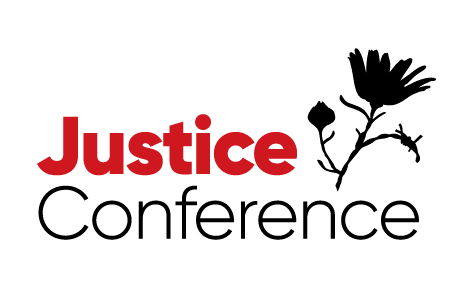Passionate Prayer for Peace
I’ve noticed that I often see prayer not as an action itself but as a predecessor to my “real” action. I think many of us do. We open meetings with prayer; we pray to kick off big events, but what about prayer as action? Prayers that change the world?
Prayer changes us, changes our world, and sustains us in the long and difficult struggle to live justly.
Many of us pray daily for our families and loved ones. We also send sporadic, urgent prayers in times of great need—when the challenges of life seem so overwhelming that we don’t know what else to do. In seeking justice, this will always be the temptation. The challenges of hunger, racism, gender equality, slavery, and extreme poverty are all much bigger than we can manage.
What if we prayed faithfully for an end to hunger? For an end to slavery? What if we prayed with the same fervor for our brothers and sisters in extreme poverty as we would for our own children?
I have no doubt that these prayers would not only change us—convict us, give us wisdom for more and better action, sustain us in the overwhelming struggle—but would also change our leaders, those in power, and ultimately the world. As we pray and encounter God, we can’t help but be spurred on to action. In other words, the more we pray about an issue, the more we realize what we can do. Prayer is empowering!
The book of Nehemiah is a good example for us in how prayer changes us and our world. We read that in the midst of Nehemiah’s fear over the fate of Jerusalem, he quickly prayed to God for wisdom. As the story goes, Nehemiah’s words convinced the king to let him leave his position and lead a revival whose cornerstone was rebuilding Jerusalem’s walls—an act of protection, defiance, and justice.
It would be a mistake to view this as Nehemiah’s quick one and done prayer. When we read the beginning of the story, we see that Nehemiah spent the days before this encounter with the king fasting, confessing, praying, and humbling himself in the name of his people before God. It was this prolonged intimate time with God that allowed him to have such a bold and successful encounter with King Artaxerxes.
There is no doubt that when Nehemiah heard the sad news of his homeland and its dire state, his heart was burdened. In fact, we read that, immediately after he heard about Jerusalem, he sat down, weeping and mourning for days. But his first response was one of humility and honesty—he knew he was powerless to change the circumstances and needed to petition God for his divine intervention. We call this “Holy help!”
When it comes to the call to pursue justice, we can learn from Nehemiah. In our world we have unprecedented access to news, and therefore to injustice and tragedy. We hear news of yet another police shooting of an unarmed black man, another conflict in a far away land, another devastating hurricane, and all of this at once overwhelms us. It is particularly overwhelming when we ourselves are experiencing racism, struggling for equality, experiencing economic hardship and struggling to make it. We try to figure out which organizations can be trusted and which ones need to be reformed. Who can help us, who can we help? We realize it’s a near impossible task, and can feel overwhelmed at our powerlessness.
Nehemiah models for us how we can begin to respond: through passionate prayer and inspired action. After Nehemiah began rebuilding the wall, he encountered great opposition from those directly opposed—and threats of violence. But once again, Nehemiah called the people to God’s mission of justice and right living; once again, he sought counsel from God in prayer and God sustained him in his struggle. Nehemiah knew that his work was not his own to accomplish but was God’s design for his people—this gave him a sense of resting in God’s power, not his own. Bringing justice to the world isn’t going to be accomplished by us, but by God. This vision isn’t ours – justice and shalom is God’s vision for his beautifully created world: one day all things will be made new!
We imitate Christ when we seek justice for ourselves and our neighbors. He lends us his compassion and his dreams for restoration. It’s his hope to see all of creation restored to wholeness, so we pray passionately for justice to be done—“Thy kingdom come, thy will be done on earth as it is in heaven”; we pray for God to change us, to make us sensitive to the cries of injustice, and for the wisdom and courage to act; and finally, we pray for God to sustain us in the struggle. The battle is his, so we rest in his power.
This was adapted from Live Justly, 2022 published by Tearfund USA and originally posted on The Justice Conference USA.
